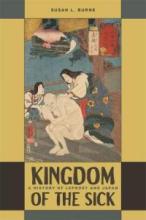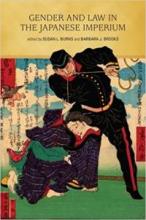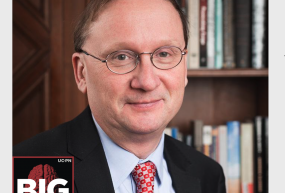
University of Chicago, PhD '94
BIOGRAPHY
I am a historian of Japan's "long" nineteenth century (1780s–1910s). I am interested in the social history of intellectual and cultural practices and the continuities and ruptures between what conventional periodization terms Japan's "early modern" and "modern" eras. My first book, Before the Nation: Kokugaku and the Imagining of Community in Early Modern Japan (Duke, 2003) examined the nativist discourse of the late Tokugawa period. It traced the efforts of early nineteenth century intellectuals to define the nature of "Japan" as a locus of personal and cultural identity and the appropriation of aspects of this discourse by modern scholars who sought to define the contours of modern Japanese nationalism.
With the completion of this project I turned to a new set of questions related to the history of the body as it came to be conceptualized within medical and legal discourses. My second monograph, Kingdom of the Sick: Leprosy, Citizenship, and Japan (University of Hawaii Press, 2019) explores the long history of leprosy in Japan from the late medieval period when it was identified as a "karmic retribution disease" to the modern period when attempts to control the disease prompted the creation of a system of public sanitaria. I argue that in the modern era leprosy, a particularly stigmatized disease, became the object of an intense debate on the place of the chronically ill and disabled within the Japanese nation.
Gender is an important category of analysis within my work and I have a long-standing interesting in issues of reproductive health and reproductive rights. Together with Barbara Brooks, I co-edited Gender and Law in the Japanese Imperium (Hawaii, 2014). I authored the introduction and contributed an essay that examined the criminalization of abortion and infanticide in late nineteenth-century Japan.
I am currently working on two additional monographs. The first explores the intellectual and professional world of an early modern doctor who practiced in the villages in Akita in the 1830s and '40s. It seeks to explore the impact of new forms of knowledge, techniques, and materia medica for medical practice and considers the implications of the "medical revolution" of the early nineteenth century for the state-sponsored introduction of Western biomedicine after 1870. The second builds on my research on medical commodities, alternative therapies, and psychiatric practice and explores the impact of the new medical marketplace on ideas about mental health in Japan from c. 1880–1940.
In recent years, I have become interested in the use of digital tools for historical research, specifically ArcGIS and text mining. I utilized ArcGIS in my research on leprosy to explore the place of private leprosy hospitals and clinics in the cityscape of late nineteenth-century Tokyo. I am working on a digital project called "Mapping Medical Tokyo" that seeks to visualize and analyze the spatial dimensions of health, disease, and medical care in the Meiji-era city.
My work has been supported by the Fulbright-Hays Fellowship, the IIE Fulbright, the Japan Foundation, the Japan Society for the Promotion of Science, and the National Endowment for the Humanities.
Courses
-
Gender and Sexuality in World Civilizations (undergraduate)
-
Edo/Tokyo: Society and the City in Japan (undergrad/grad)
-
Medicine and Culture in East Asia (undergrad/grad)
-
Contact Zones: Treaty Ports in Nineteenth Century Japan (undergrad/grad)
-
Gender and Japanese History (undergrad/grad)
Recent Research / Recent Publications
-
Kingdom of the Sick: A History of Leprosy and Japan. Honolulu: University of Hawaii Press, 2019.
-
Gender and Law in the Japanese Imperium, co-editor with Barbara J. Brooks. Honolulu: University of Hawaii Press, 2014.
-
Before the Nation: Kokugaku and the Imagining of Community in Early Modern Japan. Durham, NC: Duke University Press, 2003.
-
"The Japanese Patent Medicine Trade in East Asia: 'Women's Medicines and the Tensions of Empire." In Gender, Health, and History in East Asia, edited by Izumi Nakayama and Angela Leung. Hong Kong: Hong Kong University Press, 2018.
-
"History, Testimony, and the Afterlife of Quarantine: The National Hansen's Disease Museum of Japan." In Quarantine: Local and Global Histories, edited by Alison Bashford, 210–29. London: Palgrave, 2016.
-
"A Village Doctor Reads the Shang Han Lun: Medical Empiricism in Late Tokugawa Japan." In Antiquarianism, Language, and Medical Philology, edited by Benjamin Elman, (Leiden: Brill, 2015).
-
"Rethinking 'Leprosy Prevention': Entrepreneurial Doctors, the Meiji Press, and the Civic Origins of Biopolitics." Journal of Japanese Studies 38, no. 2 (Sum. 2012): 297–323.
-
"Marketing Health and Beauty: Advertising, Medicine, and the Modern Body in Meiji-Taisho Japan." In East Asian Visual Culture from the Treaty Ports to World War II, edited by Hans Thomsen and Jennifer Purtle, 179–202. (Chicago: Paragon Books, 2009).
-
"Marketing 'Women's Medicines': Gender, OTC Herbal Medicines, and Medical Culture in Modern Japan," Asian Medicine 7, no.1 (2009).
-
“Nanayama Jundō at Work: A Village Doctor and Medical Knowledge in Nineteenth-Century Japan.” East Asian Science, Medicine, and Technology 29 (Aut. 2008): 61–82.
-
Publishes Kingdom of the Sick: A History of Leprosy and Japan (Hawaii Press, 2019)
-
Co-edits Gender and Law in the Japanese Imperium (Hawaii, 2014) with Barbara J. Brooks
-
Discusses the history of leprosy in Japan on ABC Radio Australia [15 mins]
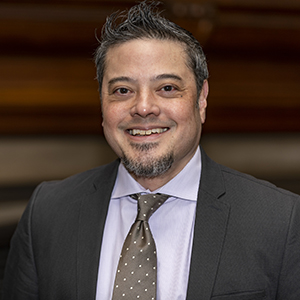
Harvard University, PhD '05
BIOGRAPHY
A deep and abiding interest in the interactions between Asian Americans and African Americans drives my first book manuscript. Focusing primarily on the home front culture of World War II, but utilizing the necessary bookends of the Popular Front of the 1930s and the Cold War of the 1950s, my monograph interrogates the ways in which different racialized and ethnic groups interacted during a heightened sense of possibility for an American multiracial democracy. Unpublished diaries of incarcerated Japanese American, Charles Kikuchi, serve as a narrative through-line for the manuscript—he wrote every day of his life, from the bombing of Pearl Harbor until his death in 1988. While Kikuchi can be considered one of a handful of radical Nisei (second-generation) intellectuals consumed by the constitutional violation of Japanese Americans, he was most deeply concerned with the welfare of African Americans and other oppressed minorities. Recognition of their equality by the rest of the nation would prove key to the fulfillment of democracy at home and abroad. My book therefore considers prototypes for Kikuchi, like Karl Yoneda, a highly visible Communist Party member during the Popular Front, intellectual mentors during the war, such as immigrant activist Louis Adamic, W.I. Thomas, and Dorothy Thomas, social scientists associated with, respectively, the Chicago school of sociology and Japanese evacuation and resettlement study, and “everyday people,” from African Americans on the South Side of Chicago to Filipino migratory farm laborers in central California. The Cold War closes off some of the interracial and democratic possibilities of this fertile intellectual era, but not before a constellation of radical counterpublics appear on the national and international maps. A cartography of this period, therefore, demonstrates not only the importance of reexamination of the Kikuchi diaries, but also the efforts and limits of these particular publics to repossess, reclaim, and redefine American democracy.
I have been honored to be a dissertation fellow at the Charles Warren Center for Studies in American History, and an Andrew W. Mellon Foundation Postdoctoral Fellow. Prior to Chicago, I taught at Harvard, Princeton, Columbia, and most recently, the University of Michigan.
Recent Research / Recent Publications
- “Filipino Grief in Five Acts.” Amerasia Journal, (2024), 1–7.
- "Race (& Love) Matter More Than Ever Now: Affirmative Action, Alliances, and Anti-Asian Hate.” In Prophetic Leadership and Visionary Hope: New Essays on the Work of Cornel West. Edited by Barbara Will. Philadelphia: University of Pennsylvania Press, 2023: 161-177.
- Jim and Jap Crow: A Cultural History of 1940's Interracial America. Princeton, NJ: Princeton University Press, 2012.
- "Charles Kikuchi's 'American Dilemma': African Americans in the Unpublished Diaries of a Nisei Intellectual." In Journey into Otherness: Essays in North American History, Culture and Literature, 191–203. Edited by Ada Savin. Amsterdam: VU Press, 2005.
- "Hardly 'Small Talk': Discussing Race in the Writing of Hisaye Yamamoto." Prospects: An Annual of American Cultural Studies 29 (2005): 435–72.
- "The Unpublished Diaries of Charles Kikuchi: 'Black and Yellow' through the Eyes of a Progressive Nisei Intellectual." Prospects: An Annual of American Cultural Studies 28 (2004): 383–47.
- "Call-and-Response: Tracing the Ideological Shifts of Richard Wright through His Correspondence with Friends and Fellow Literati." African American Review 37, no. 1 (spring 2003): 53–64.
- Interviewed on The Course Podcast, Episode 28, "How do People Get Along?"
- Discusses baseball and African American culture with the New York Times
- Discusses the connection between racism and violent attacks
- Discusses baseball, race, and history with the alumni magazine
- Delivered 2015 Harper Lecture on "Illusion Fields: Baseball and US History" [video; go to 12.40 minutes beginning of lecture; total video 73 minutes]
- Awarded 2015 Quantrell Award for Excellence in Undergraduate Teaching Excellence in Undergraduate Teaching
- BookTV (CSPAN2) conversation with Cornel West at Harlem's Hue-Man Bookstore, May 2012.
- "Just a Friendly Game." Interview with Desmond Nakano, director of White Man's Burden (1995) and American Pastime (2007). Nakano's latest film revisits the Japanese American incarceration through the lens of camp league baseball games, jazz-band swinging, and interracial romance. From Cinevue: Program for the Asian American International Film Festival, 2007.

Harvard University, PhD '95
RESEARCH INTERESTS
Twentieth-century US international history; global history of human-rights politics; postcolonial Southeast Asia
BIOGRAPHY
Mark Philip Bradley is the author of The World Reimagined: Americans and Human Rights in the Twentieth Century (2016), Vietnam at War (2009), and Imagining Vietnam and America: The Making of Postcolonial Vietnam (2000), which won the Harry J. Benda Prize from the Association for Asian Studies. He is the coeditor of Making the Forever War (2021), Familiar Made Strange: American Icons and Artifacts after the Transnational Turn (2015), Making Sense of the Vietnam Wars (2008), and Truth Claims: Representation and Human Rights (2001). Bradley's work has appeared in the American Historical Review, Journal of American History, the Journal of World History, Diplomatic History, and Dissent. His current project is an intellectual and cultural history of the global South under contract with Yale University Press.
A recipient of fellowships from the John Simon Guggenheim Memorial Foundation, the American Council of Learned Societies, the National Endowment for the Humanities, and Fulbright-Hays, Bradley was appointed editor of the American Historical Review in 2021. He has served as the elected president of the Society for Historians of American Foreign Relations, general editor for the four volume Cambridge History of America and the World and coeditor of the Cornell University Press book series, The United States in the World.
Recent Research / Recent Publications
- The World Reimagined: Americans and Human Rights in the Twentieth Century. Cambridge: Cambridge University Press, 2016.
- Vietnam at War: The Search for Meaning. New York: Oxford University Press, 2009.
- Imagining Vietnam and America: The Making of Postcolonial Vietnam, 1919–1950. Chapel Hill: University of North Carolina Press, 2000.
- The Familiar Made Strange: American Icons and Artifacts after the Transnational Turn, coeditor with Brooke L. Blower. Ithaca, NY: Cornell University Press, 2015.
- Making Sense of the Vietnam Wars: Transnational and International Perspectives, coeditor with Marilyn B. Young. New York: Oxford University Press, 2008.
- Truth Claims: Representations and Human Rights, coeditor with Patrice Petro. New Brunswick, NJ: Rutgers University Press, 2002.
- “Making Tuan Andrew Nguyen’s The Spector of the Ancestors Becoming,” American Historical Review 127.3 (September 2022): 1312-18.
- “What is America and the World?”, Cambridge History of America and the World, volume 1 (Cambridge: Cambridge University Press, 2021): 1-7.
- “The Anecdote,” co-written with Lee Weng-Choy, Portable Gray 4.2 (Fall 2021): 310-18.
- "Understanding the Rise of the Global South in Pandemic Times." Diplomatic History 45, no. 3 (2021): 460-67.
- "Making Peace as a Project of Moral Reconstruction." In The Cambridge History of the Second World War, vol. 3, edited by Michael Geyer and Adam Tooze, 528–551. Cambridge: Cambridge University Press, 2015.
- Cowritten with Viet Thanh Nguyen. "Vietnam: American and Vietnamese Public Diplomacy, 1945–2010." In Adversarial States, US Foreign Policy, and Public Diplomacy, edited by Geoffrey Wiseman, 110–139. Stanford: Stanford University Press, 2015.
- “American Vernaculars: The United States and the Global Human Rights Imagination (Presidential Address),” Diplomatic History 38, no. 1 (Jan. 2014): 1–21.
- “The Charlie Maier Scare: The Historiography of American Foreign Relations, 1959–1980.” In America in the World: The Historiography of American Foreign Relations since 1941, 2nd ed., edited by Frank Costigliola and Michael J. Hogan, 9–29. Cambridge: Cambridge University Press, 2013.
- “Internationalism.” In The Oxford Encyclopedia of American Military and Diplomatic History, edited by Timothy J. Lynch, 517–23. New York: Oxford University Press, 2013.
- “The United States and the Global Human Rights Politics in the 1940s.” In Civil Religion, Human Rights and International Relations, edited by Helle Porsdam, 118–35. London: Edward Elgar, 2012.
- “Writing Human Rights History.” Il Mestiere di storico 3, no. 2 (2011): 13–30.
- “Approaching the Universal Declaration of Human Rights.” In The Human Rights Revolution: An International History, edited by Akira Iriye, Petra Goode, and William Hitchcock, 327–43. New York: Oxford University Press, 2011.
- “Setting the Stage: Vietnamese Revolutionary Nationalism and the First Vietnam War.” In The Columbia History of the Vietnam Wars, edited by David Anderson, 93–119. New York: Columbia University Press, 2011.
- "Decolonization, Revolutionary Nationalism, and the Cold War, 1919-1962." In The Cambridge History of the War, vol. 1, edited by Melvyn P. Leffler and Odd Arne Westad. Cambridge: Cambridge University Press, 2009.
- "The Ambiguities of Sovereignty: The United States and the Global Rights Cases of the 1940s." In Art of the State: Sovereignty Past and Present, edited by Douglas Howland and Luise White. Bloomington: Indiana University Press, 2008.
- "Introduction." In Human Rights and Revolution, edited by Jeffrey N. Wasserstrom, Lynn Hunt, and Greg Grandin. New York: Rowman and Littlefield, 2007.
- "Interchange: Legacies of the Vietnam Wars." Journal of American History 43, no. 2 (Sept. 2006): 452–91.
- "Making Sense of the French War: Postcolonial Modernity and Vietnam, 1946-1954." In Indochina in the Balance: New Perspectives on the First Vietnam War, edited by Mark Lawrence and Fredrik Logevall, 16–40. Cambridge, MA: Harvard University Press, 2006.
- "The Imperial and the Postcolonial." In Palgrave Advances in International History, edited by P. Finney, 247–266. London and New York: Palgrave/Macmillan Press, 2005.
- "Becoming Van Minh: Civilizational Discourse and Rights Talk in Colonial Vietnam." Journal of World History 15, no. 1 (Mar. 2004): 65–83.
- "Franklin Roosevelt, Trusteeship and US Exceptionalism: Reconsidering American Visions of Postcolonial Vietnam." In The Transformation of Southeast Asia: International Perspectives on Decolonization, edited by Marc Frey, Ronald W. Preussen, and Tan Tai Yong, 197–212. Armonk: M.E. Sharpe, 2003; and in A Companion to the Vietnam War, edited by Marilyn B.Young and Robert Buzzanco, 130–145. New York: Blackwell Publishing, 2002.
- "Contests of Memory: Remembering and Forgetting War in the Contemporary Vietnamese Cinema." In The Country of Memory: Remaking the Past in Late Socialist Vietnam, edited by Hue-Tam Ho Tai, 196–226. Berkeley: University of California Press, 2001.
- "Slouching Toward Bethlehem: Culture, Diplomacy, and the Origins of the Cold War in Vietnam." In Cold War Constructions: The Political Culture of United States Imperialism, 1945–1966, edited by Christian G. Appy, 11–34. Amherst: University of Massachusetts Press, 2000.
- Reviews Ken Burns and Lynn Novick’s The Vietnam War, American Historical Review 124, no. 1 (Feb. 2019).
- "The Universal Declaration of Human Rights at 70," Perpectives on History, Dec. 10, 2018
- Appointed Deputy Dean of the Social Sciences
- Discusses "Human Rights in the Era of Trump" for AHA Today (blog)
- Talks on "American Views on Global Human Rights," Woodrow Wilson Center [video, 88 minutes]
- Authors The World Reimagined (Cambridge, 2016)
- Convenes “Colloquy: Queering America and the World.” Diplomatic History 40, no. 1 (Jan. 2016)
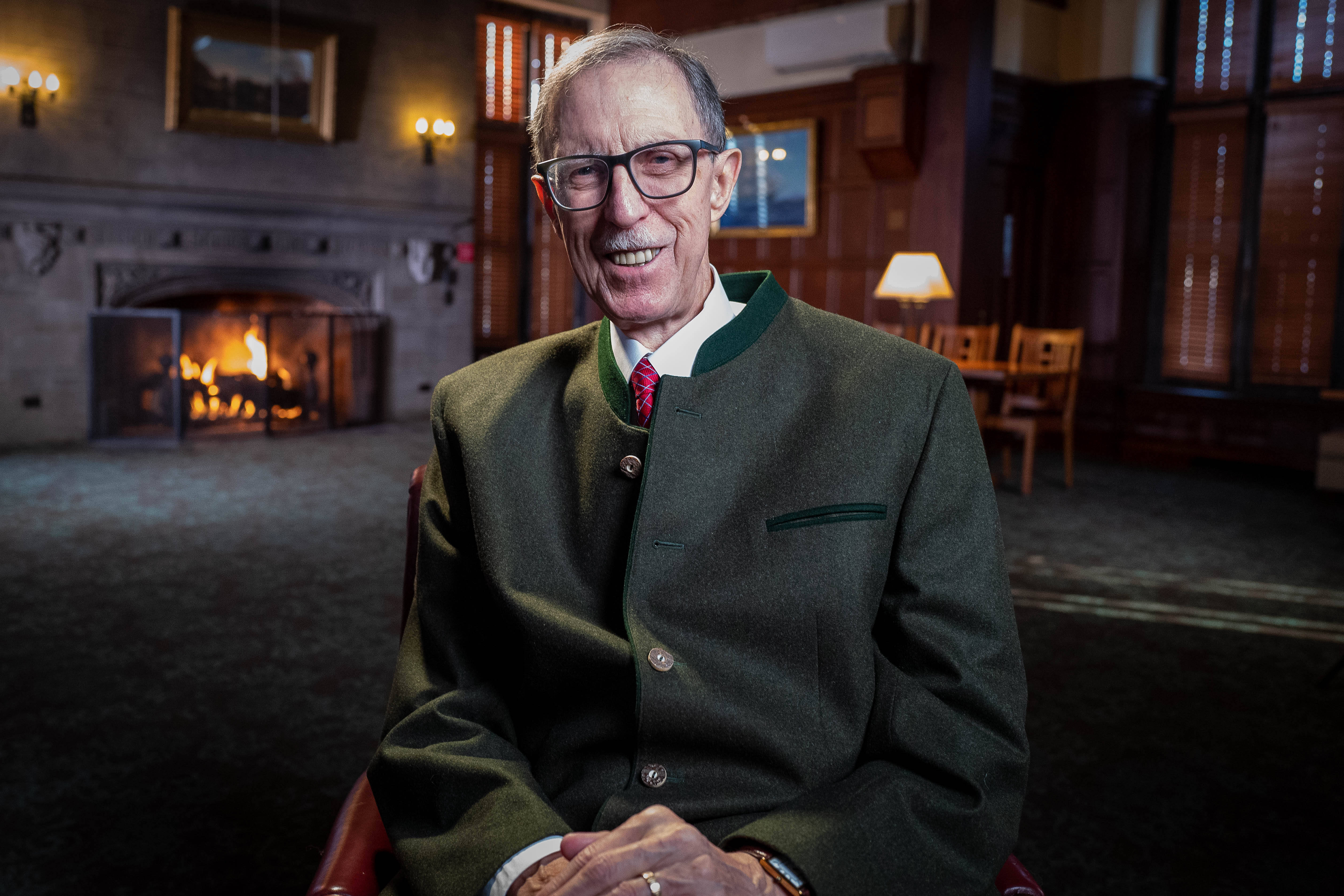
University of Chicago, PhD '75
BIOGRAPHY
My research and teaching focus on the history of modern Europe, especially on the states, the peoples, and the societies of Central Europe since 1700. My special teaching interests are German history from 1740 to 1918; the history of the Hapsburg Empire between 1648 and 1918, and the history of Austria from 1918 to the present; religion and politics in modern European history; and the history of European and American universities in the nineteenth and twentieth centuries.
In recent years my work has dealt with the history of the University and with the history of the Habsburg Empire and Republican Austria. I published The University of Chicago: A History (University of Chicago Press, 2015), and I have recently completed the Austria, 1867–1955 volume for the Oxford History of Modern Europe series, published by Oxford University Press in late 2022.
I am now working on a history of Religion and Politics in Modern European History from 1789 to 1960 for Princeton University Press.
With Jan E. Goldstein and Fredrik Albritton Jonsson, I am also an editor of The Journal of Modern History.
Recent Research / Recent Publications
- Austria, 1867-1955. Oxford History of Modern Europe Series. Oxford: Oxford University Press, 2022.
- Karl Lueger (1844–1910). Christlichsoziale Politik als Beruf. Vienna: Böhlau Verlag, 2009.
- Culture and Political Crisis in Vienna: Christian Socialism in Power, 1897–1918. Chicago: University of Chicago Press, 1995.
- Political Radicalism in Late Imperial Vienna: Origins of the Christian Social Movement, 1848–1897. Chicago: University of Chicago Press, 1981.
- Coeditor (with Jan E. Goldstein). Nineteenth-Century Europe: Liberalism and Its Critics. Chicago: University of Chicago Press, 1988.
- Coeditor (with Jan E. Goldstein). Twentieth-Century Europe. Chicago: University of Chicago Press, 1987.
- “A Catholic Triptych from Monarchy to Republic: Ignaz Seipel, Richard Schmitz, and Michael Pfliegler,” in Ulrike Harmat, ed., Die Habsburgermonarchie 1848-1918. Sonderband. Das Erbe der Habsburgermonarchie in den Nachfolgestaaten. Brüche und Kontinuitäten (Vienna, 2025), pp. 917-52.
- "Die Gründung der Republik (1918)." In 100 Jahre Republik: Meilensteine und Wendepunkte 1918–1920. Edited by Andreas Huber. Vienna, 2020.
- "From an Absolutist to a Constitutional State: The Political System." In Franz Joseph 1830–1916. Edited by Karl Vocelka and Martin Mutschlechner, 34–37. Vienna: Brandstätter, 2016.
- "Badeni and the Revolution of 1897." In Bananen, Cola, Zeitgeschichte: Oliver Rathkolb und das lange 20. Jahrhundert. Edited by Lucile Dreidemy et al. 2 vols. Vienna: Böhlau, 2015. Vol. 1, 69–84.
- "Power, Partisanship, and the Grid of Democratic Politics: 1907 as the Pivot Point of Modern Austrian History." Austrian History Yearbook 44 (2013): 148–74.
- "Richard Schmitz and the Tradition of Imperial Catholic Politics in Austria 1907–1934." Demokratie und Geschichte. Jahrbuch des Karl von Vogelsang-Institutes 13/14 (2009/2010): 95–134.
- "The 'Collectivism of Democracy': Mass Politics in Vienna and Chicago, 1890–1918." Jahrbuch des Vereins für Geschichte der Stadt Wien 62/63 (2006/2007): 9–49.
- "Tradition und Wandel—Die Christlich Soziale Partei am Vorabend des Ersten Weltkrieges." Demokratie und Geschichte. Jahrbuch des Karl von Vogelsang-Institutes 9/10 (2005/2006): 73–99.
- "Political Catholicism in Austria, 1880-1960." Contemporary Austrian Studies 13 (2004): 6–36.
- "Silent War and Bitter Peace: The Austrian Revolution of 1918." Austrian History Yearbook 34 (2003): 1–56.
- "Wiener Konservatismus vom Reich zur Republik: Ignaz Seipel und die österreichische Politik." In Konservative Profile: Ideen und Praxis in der Politik zwischen FM Radetzky, Karl Kraus und Alois Mock. Edited by Ulrich E. Zellenberg, 341–361. Graz: Ares, 2003.
- "Catholics, Christians, and the Challenges of Democracy: The Heritage of the Nineteenth Century." In Christdemokratie in Europa im 20. Jahrhundert. Edited by Michael Gehler, Wolfram Kaiser, and Helmut Wohnout, 23–59. Vienna: Böhlau, 2001.
- "Religion and Political Development in Central Europe around 1900: A View from Vienna." Austrian History Yearbook 25 (1994): 13–57.
- "Christian Socialism under the Empire. Some Reflections." In Geschichte Zwischen Freiheit und Ordnung, 57–74. Graz: Styria, 1991.
- "Some Reflections on the Problem of Austria, Germany, and Mitteleuropa." Central European History 22 (1989): 301–15.
- "Austrian Catholics and the World: Facing Political Turmoil in the Early Twentieth Century." In The Mirror of History, 315–352. Santa Barbara, CA: ABC-Clio, 1988.
- Austria in the 1980s: Heritage of the Past, Contours of the Future. Washington, DC: Aspen Institute for Humanistic Studies, 1987.
- "The End of an Old Regime: Visions of Political Reform in Late Imperial Austria." Journal of Modern History 58 (1986): 159–93.
- "Karl Lueger and the Viennese Jews." Yearbook: The Leo Baeck Institute 26 (1981): 125–44.
- "Veränderungen im politischen Leben Wiens: Die Grossstadt Wien, der Radikalismus der Beamten und die Wahlen von 1891." Jahrbuchdes Vereins für Geschichte der Stadt Wien 36/37 (1980/1981): 95–172/117–76.
- "Freud, Marriage and Late Viennese Liberalism: A Commentary from 1905." Journal of Modern History 50 (1978): 72–102.
- "A. J. P. Taylor and the Art of Modern History." Journal of Modern History 49 (1977): 40–72.
- The University of Chicago: A History, Enlarged Edition. Chicago: University of Chicago Press, 2024.
- The University of Chicago: A History. Chicago: University of Chicago Press, 2015.
The following papers are published in the College's Occasional Papers on Higher Education Series.
- Volume XXVII. Thirty Years in the Field | Annual Report to Faculty – October 25, 2022
- Volume XXVI. Insider Visions of the University: Thorstein Veblen, William Benton and John Benton on the Identity of the University of Chicago – October 26, 2021
- Volume XXV. Charles H. Judd, an Empire of Testing, and the 'Science of Education' – October 29, 2019
- Volume XXIV. ‘The Universities and the Promise of American Life – October 24, 2017
- Volume XXIII. ‘Higher Education in America and Europe Around 1900’: Some Perspectives on Our Shared History and Its Relevance For Our Time – October 18, 2016
- Volume XXII. ‘A Hell of a Job Getting it Squared Around’: Three Presidents in Times of Fundamental Change: Ernest D. Burton, Lawrence A. Kimpton, and Edward H. Levi – October 30, 2012
- Volume XXI. ‘Teaching at a University of a Certain Sort’: Education at the University of Chicago Over the Past Century – October 18, 2011
- Volume XX. ‘Not as a Thing for the Moment, but for All Time’: The University of Chicago and Its Histories – October 19, 2010
- Volume XIX. ‘A Noble and Symmetrical Conception of Life’: The Arts at Chicago on the Edge of a New Century – October 27, 2009
- Volume XVIII. ‘The Kind of University That We Desire to Become’: Student Housing and the Educational Mission of the University of Chicago – October 28, 2008
- Volume XVII. ‘We are All Islanders to Begin With’: The University of Chicago and the World in the Late Nineteenth and Twentieth Centuries – October 30, 2007
- Volume XVI. A Twentieth-century Cosmos: The New Plan and the Origins of General Education at Chicago – October 31, 2006
- Volume XV. ‘Broad and Christian in the Fullest Sense’: William Rainey Harper and the University of Chicago – October 25, 2005
- Volume XIII. The ‘Persistence to Keep Everlastingly at It’: Fund-raising and Philanthropy at Chicago in the Twentieth Century – October 26, 2004
- Volume XII. Judson’s War and Hutchins’s Peace: The University of Chicago and War in the Twentieth Century – October 28, 2003
- Volume X. Academic Freedom and the Modern University: The Experience of the University of Chicago – May 20, 2016
- Volume VIII. The Organization of the College and the Divisions in the 1920s and 1930s – October 30, 2001
- Volume VI. Building for a Long Future: The Role of the Trustees in the Early University – October 17, 2000
- Volume IV. The University of Chicago in the 1960s and 1970s – October 19, 1999
- Volume III. Continuity & Change: The College as a Sponsor of Research and Teaching – October 20, 1998
- Volume II. Continuity & Change: The College as an Advocate of Curricular Innovation and Debate – October 21, 1997
- Volume I. Continuity & Change: The College as a Member of the Wider University – October 22, 1996
- "Drafting Salvation." University of Chicago Magazine (December 1995): 18–21.
- Appointed to Sixth Term as Dean of the College
- Completes a scholarly history of the University of Chicago.
- Awarded a doctorate honoris causa by the University of Vienna on the occasion of the university's 650th anniversary, at the Dies Honorum ceremony in Vienna on May 13, 2015.
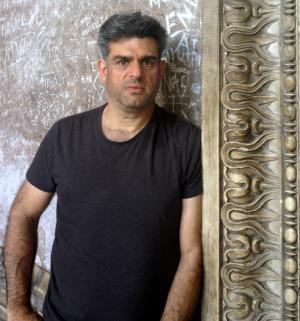
Harvard University, PhD '96
BIOGRAPHY
Emilio Kourí's main scholarly interest is in the history of rural Mexico since Independence, including society, economy, politics, culture, and the law. He is the author of A Pueblo Divided: Business, Property, and Community in Papantla, Mexico. It tells the story of the strife-ridden transformation of rural social relations in the Totonac region of Papantla during the course of the nineteenth century, paying particular attention to how the progressive development of a campesino-based international vanilla economy changed and ultimately undermined local forms of communal landholding. A Pueblo Divided received the 2005 Bolton-Johnson Prize from the Conference on Latin American History (CLAH) and the 2005 Erminie Wheeler-Voegelin Prize (Honorable Mention) from the American Society for Ethnohistory. He is also the editor of En busca de Molina Enríquez: cien años de Los Grandes Problemas Nacionales and co-editor of Revolución y exilio en la historia de México: Homenaje a Friedrich Katz.
He is at work on a three-volume history of communal landholding in Mexico. Volume One examines the evolving meaning and practice of communal land tenure in Mexican villages during the 18th and 19th centuries, focusing on changes brought about by agricultural commerce and commodification, population growth and mobility, socio-economic differentiation within and beyond villages, and the haphazard implementation of a multiplicity of liberal disentailment laws. Volume Two focuses on the Zapatista movement of the Mexican Revolution, offering a revisionist interpretation of its agrarian and political goals and practices and of its place in the land reform that would follow its demise. Volume Three explains the legal, political, and ideological origins of the collective land-grant community (ejido) created by the Mexican Revolution between 1915 and 1934. By 1992, when a constitutional amendment ended the redistribution program, more than two thirds of Mexico’s arable lands and forests were at least nominally in the hands of these land-grant communities—the most extensive state-managed land tenure transformation in the history of modern Latin America. Historians have long regarded the communal character given to ejido property as a return to forms of social organization rooted in Mexico’s indigenous past, and have considered it to be the fulfillment, at least in principle, of what villagers like Emiliano Zapata had long demanded and fought for. Against prevailing interpretations, Volume Three argues that the new ejido of the Revolution was not what country people (and especially the Zapatistas) had battled for. Rather, it was the piecemeal product of idealized notions of indigenous communal organization and historical practice hastily contrived by the "progressive" elites who won the Revolution and who were then compelled in fits and starts to make expedient agrarian reforms in order to build sorely needed popular political allegiances.
He teaches classes and seminars on land reforms, rural ecologies and social movements, indigenous societies, and the history of agrarian thought, as well as general courses on Latin American and Latino/a history, and is director of the Katz Center for Mexican Studies.
Recent Course Offerings
-
Tropical Commodities in Latin America
-
Latin American History Seminar
-
Zapatista Social Movements, Old and New
-
Agrarian Reform in Twentieth-Century Mexico
-
The History of Mexico, 1876 to the Present
-
Pre-Columbian and Early Colonial Latin America
-
US Latinos: Origins and Histories
-
Latin American Civilizations
Recent Research / Recent Publications
- "On the Mexican Ejido." Humanity 11.2.
- “Chico Franco y Nicolás Zapata.” Revista NEXOS (August 2019).
- “El alma perdida del Plan de Ayala.” Revista NEXOS (July 2019).
- "La caja de hojalata." Revista NEXOS (June 2019).
- "El ejido de Anenecuilco." Revista NEXOS (May 2019).
- "La historia al revés." Revista NEXOS (Apr. 2019).
- "Sobre la propiedad comunal de los pueblos: De la Reforma a la Revolución." Historia Mexicana (264) 66, no. 4 (Apr.–June 2017): 1,923–60.
- "La promesa agraria del artículo 27.” Revista NEXOS (Feb. 2017).
- "La invención del ejido." Revista NEXOS (Jan. 2015).
- "Claroscuros de la reforma agraria mexicana." Revista NEXOS (Dec. 2010).
- Revolución y exilio en la historia de México: Homenaje a Friedrich Katz. Coedited with Javier Garciadiego. Mexico: Ediciones Era, coedition with the Colegio de México and the Katz Center for Mexican Studies, 2010.
- Editor. En busca de Molina Enríquez: cien años de Los Grandes Problemas Nacionales. Mexico: coedition with the Colegio de México and the Katz Center for Mexican Studies, 2009.
- "Manuel Gamio y el Indigenismo de la Revolución Mexicana." In Historia de los intelectuales en América Latina, vol 2, edited by Carlos Altamirano. Buenos Aires: Katz Editores, 2010
- "John Womack: sobre historia e historiadores." Revista Temas (2008). Interview.
- "Aspectos económicos de la desamortización de las tierras de los pueblos." In España y México, ¿Historias económicas paralelas?, edited by Rafael Dobado, Aurora Gómez Galvarriato, and Graciela Márquez. Mexico City: Fondo de Cultura Económica, 2007.
- A Pueblo Divided: Business, Property, and Community in Papantla, Mexico. Stanford: Stanford University Press, 2004.
- "Interpreting the Expropriation of Indian Pueblo Lands in Porfirian Mexico: The Unexamined Legacies of Andrés Molina Enríquez." The Hispanic American Historical Review 82, no. 1 (Feb. 2002).
- "El comercio de exportación en Tuxpan, 1870–1900." In El siglo XIX en las Huastecas, México, edited by Antonio Escobar Ohmstede and Luz Carregha Lamadrid. Mexico City: Centro de Investigaciones y Esudios Superiores en Antropología Social, 2002.
- "Economía y comunidad en Papantla: reflexiones sobre 'la cuestión de la tierra' en el siglo XIX." In Estructuras y formas agrarias en México: del pasado al presente, edited by Antonio Escobar Ohmstede and Teresa Rojas Rabiela, 197–214. Mexico City: Centro de Investigaciones y Esudios Superiores en Antropología Social, 2001.
- "La vainilla de Papantla: Agricultura, comercio y sociedad rural en el siglo XIX." Signos Históricos 3 (2000).
- "Lo agrario y lo agrícola: reflexiones sobre el estudio de la historia rural posrevolucionaria." Boletín del Archivo General Agrario 3 (July 1998).
- Joins panel discuss on Mexico's presidential election, Chicago Council on Global Affairs, Jan. 28, 2019
- Delivers a talk on "Friedrich Katz Agraian Mexico," Freie Universität Berlin
- Discusses Article 27 of the Constitution of Mexico, Revista NEXOS, Feb. 2017
- Discusses agrarian reforms, "La invención del ejido," iRevista NEXOS, Jan. 2015
- Hosts the XIV Reunión Internacional de Historiadores de México as director of the Katz Center for Mexican Studies, University of Chicago
- Advised curators on the exhibit, "Researching Mexico: University of Chicago Field Explorations in Mexico, 1896–2014," Special Collections. Seonaid Valiant, PhD '14, cocurated the show.
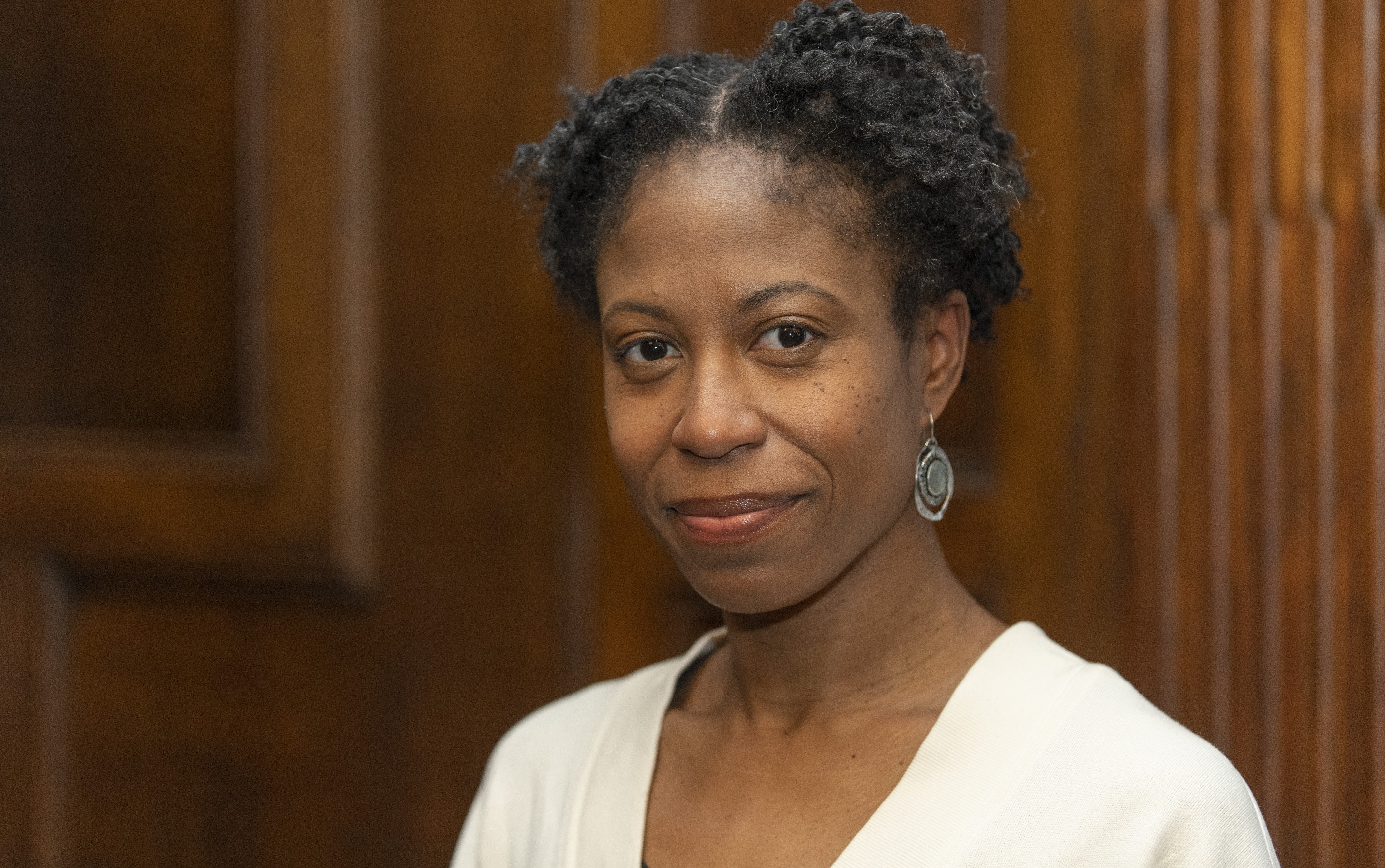
New York University, PhD '10
BIOGRAPHY
Rashauna Johnson is a historian of the 19th-century African diaspora, with an emphasis on slavery and emancipation in the US South and Atlantic World. She is especially interested in the limits and possibilities of archival histories of enslaved and freed people and the worlds in which they labored and lived. Johnson teaches courses on race, slavery, and nation; methodologies of slavery studies; and the 19th-century US.
Johnson is the author of Slavery’s Metropolis: Unfree Labor in New Orleans during the Age of Revolutions (Cambridge UP, 2016; paperback 2018), which was awarded the 2016 Williams Prize for the best book in Louisiana history and the 2018 H. L. Mitchell Award by the Southern Historical Association for the best book on the southern working class. Slavery's Metropolis was also named a finalist for the 2016 Berkshire Conference of Women's Historians Book Prize, honorable mention for the Urban History Association's Kenneth Jackson Award, and a finalist for the 2017 Frederick Douglass Book Prize. Her second book, a forthcoming study of family, race, and region in rural Louisiana, will be published by Cambridge University Press. That project has been supported by the Hutchins Center for African & African American Research at Harvard University, the Mellon Scholars Post-Doctoral Fellowship in African American History at the Library Company of Philadelphia, and The Gilder Lehrman Institute of American History. In addition, she is a coeditor of The Cambridge History of the African Diaspora.
Johnson serves extensively within and beyond the profession. She has been a member of several book prize committees, including Wesley-Logan (AHA), David Montgomery (OAH), and Harriet Tubman (Schomburg), as well as program and fellowship committees. She is an OAH Distinguished Lecturer, a member of the Omohundro Institute Council, and a former board member of the Association for the Study of the Worldwide African Diaspora (ASWAD). Consistent with her commitment to engaged scholarship beyond the profession, Johnson regularly delivers lectures to public and private high schoolers, and she has taught GED and literature courses in correctional facilities.
Johnson grew up in New Orleans, Louisiana. She earned a BA in Afro-American Studies and political science from Howard University, where she graduated summa cum laude and Phi Beta Kappa. She earned a PhD in history from New York University. Her graduate studies were supported in part by the Andrew Mellon Predoctoral Fellowship in the Humanistic Studies, and her dissertation received NYU’s 2011 Dean's Outstanding Dissertation Award in the Humanities. She is also the recipient of the Drusilla Dunjee Houston Award given by the Association of Black Woman Historians. She taught in the history department at Dartmouth College for nine years, where she directed the foreign study program in London (2017) and the honors program (2019-20). She was also affiliated with the Program in African and African American Studies (AAAS), and served on the advisory board for the Mellon Mays Undergraduate Fellowship (MMUF) Program.
Recent Research / Recent Publications
-
Slavery’s Metropolis: Unfree Labor in New Orleans during the Age of Revolutions. Cambridge University Press, 2016 (paperback 2018).
-
Downs, Jim, ed., with Rhae Lynn Barnes, Henry Louis Gates Jr., Rashauna Johnson, and John Stauffer, with Faith Smith and Nii Ayikwei Parkes, “A Novel as Archive: A Roundtable on Frances E. W. Harper’s 1892 Novel, Iola Leroy, about the Civil War and Reconstruction.” Civil War History 69, no. 4 (December 2023): 65-91.
-
“Settlers, Slavery, and the Early Republic.” William and Mary Quarterly, 3d ser., 78, no. 2 (April 2021): 235–42.
-
“Spectacles of Restraint: Race, Excess, and Heterosexuality in Early American Print Culture.” In Heterosexual Histories, eds. Rebecca Davis and Michele Mitchell. New York: NYU Press, 2021.
-
“Les études sur l’esclavage: défis et opportunités méthodologiques,” trans. Emmanuel Roudaut, Revue d’histoire du XIXe siècle 57 (2018): 128-30.
-
“From Saint-Domingue to Dumaine Street: A Family Story of Atlantic Circulations and Great Migrations,” Journal of African American History 102, no. 4 (Fall 2017): 427-43.
-
“A Fragile Empire? Early American Expansion from Below,” Reviews in American History 44, no. 3 (September 2016): 411-417.
-
“Visibility Versus Voice: Enslaved Women in U.S. History and Memory,” Reviews in American History 41, no. 2 (June 2013): 238-245.
-
“‘Laissez les bons temps rouler!’ and Other Concealments: Households, Taverns, and Irregular Intimacies in Antebellum New Orleans.” In Interconnections: Gender and Race in American History, edited by Alison M. Parker and Carol Faulkner, 19-50. Rochester: University of Rochester Press, 2012 (paperback 2014).
-
“Streets and Archives: Slavery and the Spaces of Early New Orleans,” Process History: The Blog of the Organization of American Historians (OAH), April 5, 2017.
-
“Slavery, New Orleans, and the Counting Blues,” Black Perspectives, African American Intellectual History Society (AAIHS), www.aaihs.com, March 28, 2017.
-
“Slavery’s Metropolis: The Place of Enslaved People in a Revolutionary Age,” Age of Revolutions, ageofrevolutions.com, February 27, 2017.
-
As Historians Gather, No Truce in the History Wars, NYT, January 8, 2023
-
Marc Parry, “How Should We Memorialize Slavery? A Case Study of What Happens When Research Collides with Public Memory,” The Chronicle Review of The Chronicle of Education, September 15, 2017.
-
“Raquettes in New Orleans,” Tripod: New Orleans at 300, WWNO Radio Interview, January 2016.
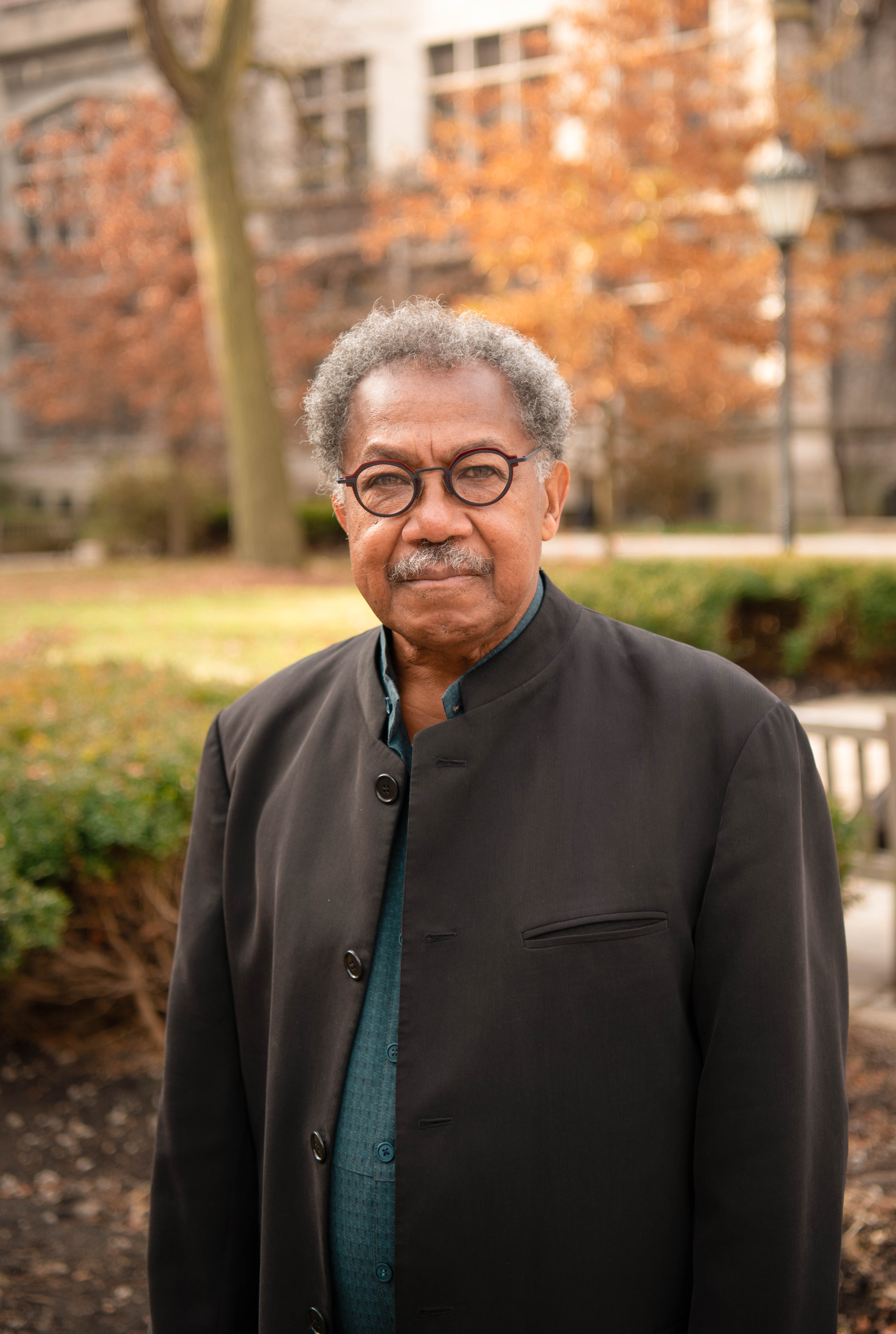
Prof. Holt has retired and no longer directs BA theses or accepts new graduate students.
Yale University, PhD '73
BIOGRAPHY
Currently the James Westfall Thompson Professor Emeritus of American and African American History at the University of Chicago, Tom Holt has a longstanding professional interest in comparing the experiences of people in the African diaspora, particularly those in the Caribbean and the United States. His study of Jamaica's economy, politics, and society after slavery, The Problem of Freedom: Race, Labor, and Politics in Jamaica and Britain, 1832–1938, (Johns Hopkins, 1992) was awarded the 1995 Elsa Goveia Prize by the Association of Caribbean Historians. The Southern Historical Association awarded the 1978 Charles S. Sydnor Prize to Prof. Holt's previous work on the comparable period in the American South after emancipation, Black Over White: Negro Political Leadership in South Carolina during Reconstruction (Illinois, 1977).
Prof. Holt was a fellow of both the John Simon Guggenheim Foundation and the Woodrow Wilson International Center for Scholars from 1987 to 1988. He received the Wilbur Cross Medal from Yale University in 2014 and the Presidential Initiatives Award from the University of Michigan from 1987 to 1989. From 1990 to 1995, Prof. Holt held a John D. and Catherine T. MacArthur Fellowship and from 1995 to 1996 was a fellow in the Center for Advanced Study in the Behavioral Sciences at Stanford University.
Prof. Holt has been a member of the editorial boards of the Journal of Southern History (1983–86), Slavery & Abolition (1986–89), and American Historical Review (1990–93). Other honors bestowed upon Prof. Holt include his election to the American Philosophical Society in 2016, to the American Academy of Arts and Sciences in 2003, and to the Board of Directors of the American Council of Learned Societies from January 1999 to May 2002, his appointment by President Clinton to the Council of the National Endowment for the Humanities from 1994 to 1997, and his presidency of the American Historical Association from 1994 to 1995. Professor Holt, who holds a PhD in American Studies from Yale University, has taught at Howard University, Harvard University, the University of California, Berkeley, and the University of Michigan.
Recent Research / Recent Publications
Prof. Holt's most recent book, The Movement: The African American Struggle for Civil Rights (Oxford, 2021), "provides an informed and nuanced understanding of the origins, character, and objectives of the mid-twentieth-century freedom struggle, privileging the aspirations and initiatives of the ordinary, grassroots people who made it. Holt conveys a sense of these developments as a social movement, one that shaped its participants even as they shaped it. He emphasizes the conditions of possibility that enabled the heroic initiatives of the common folk over those of their more celebrated leaders. This groundbreaking book reinserts the critical concept of 'movement' back into our image and understanding of the civil rights movement." The Movement is now available in French, as Le Mouvement: La lutte des Africains-Américains pour les droits civiques (La Découverte, 2021), translated by Jean-Claude Zancarini.
Children of Fire: A History of African Americans (Hill & Wang, 2010), examines the four hundred year history of African Americans in Britain's North American colonies and the United States. "[Holt] questions previous authors' attempts at pigeonholing African American history into 'neat chronological boxes,' much preferring to recount it in 'generational units' in order to reveal how lives transcend historically imposed time periods" (Kirkus Reviews). The Problem of Race in the Twenty-first Century (Harvard, 2002) draws on his thirty years of teaching and research to explore the future of race relations in America. It has foremost among its concerns "the contradictions and incoherence of a system that idealizes black celebrities in politics, popular culture, and sports even as it diminishes the average African American citizen.[...] Understanding race as ideology, he describes the processes of consumerism and commodification that have transformed, but not necessarily improved, the place of black citizens in our society."
- Discusses the 130-year anniversary of the abolition of slavery in Brazil, Cultne, Jun. 14, 2018.
- American Historical Association to offer a special session at the January 2018 meeting: "The Legacy of Thomas C. Holt's The Problem of Freedom: A 25-Year Retrospective."
- Elected to the American Philosophical Society
- Holt's Career Celebrated in a 2-Day Conference, "Marking Race, Making History"
- Awarded Wilbur Cross Medal from Yale University
- Delivers keynote address on "Slave and Citizen: Rethinking Emancipation in the Twenty-First Century" at Queen's University, Belfast [video, 57 minutes]
- Publishes Children of Fire: A History of African Americans (2011, paperback)

Harvard University, PhD '99
BIOGRAPHY
I am a historian of inequality and its persistence. I specialize in the study of Brazil and Latin America, and focus particularly on informality, cities, citizenship, law, migration, race, slavery and its afterlives.
My first book, A Poverty of Rights (Stanford, 2008), examines how weak citizenship rights and residential informality came to define urban poverty, popular social struggles, and the political dynamics of inequality in modern Brazil. It received book awards from the Social Science History Association, the Urban History Association, the Conference on Latin American History, and the Brazilian Studies Association.
A volume I coedited with Bryan McCann and Javier Auyero, Cities from Scratch (Duke, 2014), explores the many ways in which poverty and informality have shaped the Latin American urban experience. My essay, "A Century in the Present Tense," explores the intellectual history of the informal city, arguing that slums and shantytowns are dynamic historical phenomena in their own right rather than perpetual symptoms of current crises. In various other essays and ongoing research, I have focused on informality's relationship to developmentalism and political liberalism, slavery, racial inequality in law and urban space, criminal law, internal migrations, and the relationship between the urban poor and Brazil’s political left.
Along with Brazilian historian Keila Grinberg, I have edited a volume entitled The Boundaries of Freedom, which brings together essays by leading Brazilian and Brazilianist scholars of slavery and its afterlives. My own essay, “Slavery, Freedom and the Relational City,” focuses on how unfreedoms born of slavery continued to bind urban free and freedpeople during Brazil’s age of abolition.
My current book, Intimate Inequalities: Urbanism, Slavery, and Bounded Freedom in a Brazilian City, explores the historical co-evolution of urbanism and informality. The book is based in Recife, Brazil, a northeastern city that came to be seen as both the capital of Brazilian underdevelopment and the incubator of some of the country's most innovative social and cultural movements. Recife originated as a slave city, and the social and power relations that had sustained slavery continued to structure it long after abolition in 1888. Like many other cities across the globe, Recife evolved as a place where modern technologies, economies, and liberal institutions coexisted with and depended upon urban informality. Formal institutions and economies were embedded in an essentially relational city, in which personal connections mediated economic and political life and deep inequality structured vital (and often violent) intimate interdependencies. In the twentieth century, relational power proved remarkably adaptable, inhabiting liberal institutions and radical social movements, structuring "political society," and doing much to explain both social mobility and inequality's resilience. In exposing the microhistory of this phenomenon in Recife, I explore the emergence of urban informality as part and parcel of modern governance and bring into a focus a paradigm of urban modernity that shapes city life across the globe.
Other ongoing projects focus on the "Rights to the City" movement in law, political philosophy, and practice; and the global history of urban informality through a collaborative project entitled "La Ville informelle au XXe siècle: politiques urbaines et administration des populations."
At Chicago, I am part of the Faculty Advisory Committees for the Mansueto Institute for Urban Innovation, the Art and Architecture Committee and the Latin America Faculty Working Group; and I am a Faculty Affiliate at the Center for Latin American Studies and the Center for the Study of Race, Politics, and Culture. Outside of the University, I serve on the editorial boards of Past & Present and the Journal of Latin American Studies, as well as the international Advisory Committee for the Centro de Estudos da Metrópole in São Paulo and the board of the Urban History Association. My teaching focuses both on my core research interests and on the larger histories of Brazil, Latin America, cities, and social inequality. Before coming to Chicago, I taught at Amherst College and Northwestern University.
Recent Research / Recent Publications
- The Boundaries of Freedom: Slavery, Abolition, and the Making of Modern Brazil, co-edited with Keila Grinberg. Cambridge University Press, 2022.
- Cities from Scratch: Poverty and Informality in Urban Latin America, co-edited with Bryan McCann, and Javier Auyero. Durham, NC: Duke University Press, 2014.
- A Poverty of Rights: Citizenship and Inequality in Twentieth-Century Rio de Janeiro. Stanford: Stanford University Press, 2008 (paperback, 2011).
- The Boundaries of Freedom: Slavery, Abolition, and the Making of Modern Brazil, co-edited with Keila Grinberg, in production, Cambridge University Press.
- “Historicizing Informal Governance in 20th Century Brazil,” Contemporary Social Science, May 2021.
- "A ética do silêncio racial no contexto urbano: políticas públicas e desigualdade social no Recife, 1900-1940," Anais do Museu Paulista, 28 (2020): 1-45.
- “From the Mocambo to the Favela: Statistics and Social Policy in Brazil’s Informal Cities,” Histoire et Mesure 34, no. 1 (2019): 15-40.
- “Favelas and Politics in Brazil, 1890-1960,” in William Beezley, ed., Oxford Research Encyclopedia, Latin American History, Oxford University Press, 2019.
- "Urban Informality and the Paradoxes of Developmental State Building," in State and Nation Making in Latin America and Spain: The Rise and Fall of the Developmental State, edited by Miguel Centeno and Agustín Ferraro. Cambridge: Cambridge University Press, 2018.
- "Ethos and Pathos in Millennial Brazil." Latin American Research Review 53, no. 2 (June 2018): 394–402.
- "Law, Silence and Racialized Inequalities in the History of Afro-Brazil," with Keila Grinberg and Hebe Mattos. In Afro-Latin American Studies: An Introduction, edited by Alejandro de la Fuente and George Reid Andrews. Cambridge: Cambridge University Press, 2018, 130–78.
- "Beyond Insurgency and Dystopia: The Role of Informality in Brazil’s Twentieth-Century Urban Formation." In Public Goods versus Economic Interests: Global Perspectives on the History of Squatting, edited by Freia Anders and Alexander Sedlmaier. New York: Routledge, 2016, 122–49.
- "The Red Menace Reconsidered: A Forgotten History of Communist Mobilization in Rio's Favelas, 1945–1964." Hispanic American Historical Review 94, no. 1 (2014): 1–33.
- "Urban History." In Oxford Bibliographies Online (2013)
- "Democracy, Thuggery, and the Grassroots: Antoine Magarinos Torres and the União dos Trabalhadores Favelados in the Age of Carioca Populism." Nuevo Mundo–Mundos Nuevos, Colloquium: "Repensando los populismos en América Latina," February 2013.
- "Partindo a cidade maravilhosa" (Dividing the Marvelous City). In Quase cidadão: histórias e antropologias da pós-emancipação no Brasil, edited by Flávio dos Santos Gomes and Olívia Maria Gomes da Cunha. Rio de Janeiro: Editora da Fundação Getúlio Vargas, 2007, 419–50.
- "Direitos por lei, ou leis por direito?" (Rights by Law or Laws by Right?). In Direitos e justiças no Brasil: Histórias plurais, edited by Silvia Lara and Joseli Mendonça, 417–56. São Paulo: UNICAMP Press, 2006.
- "Slandering Citizens: Insults, Class and Social Legitimacy in Rio de Janeiro's Criminal Courts." In Honor, Status, and the Law in Modern Latin America, edited by Sueann Caulfield, Lara Putnam, and Sarah Chambers, 176–200. Durham, NC: Duke University Press, 2005.
- "Quase Pretos de Tão Pobres? Race, Class, and Criminal Justice in Rio de Janeiro." Latin American Research Review 39, no. 1 (February 2004): 31–59.
- Profiled on BBS Brasil on teaching Brazilian history
- Part of the core team of La Ville informelle au XXe siècle
- Discusses contemporary urban studies with Marco Garrido, Dialogo, Winter 2018
- Discusses Urban Poverty in Latin America [video, 3 minutes]
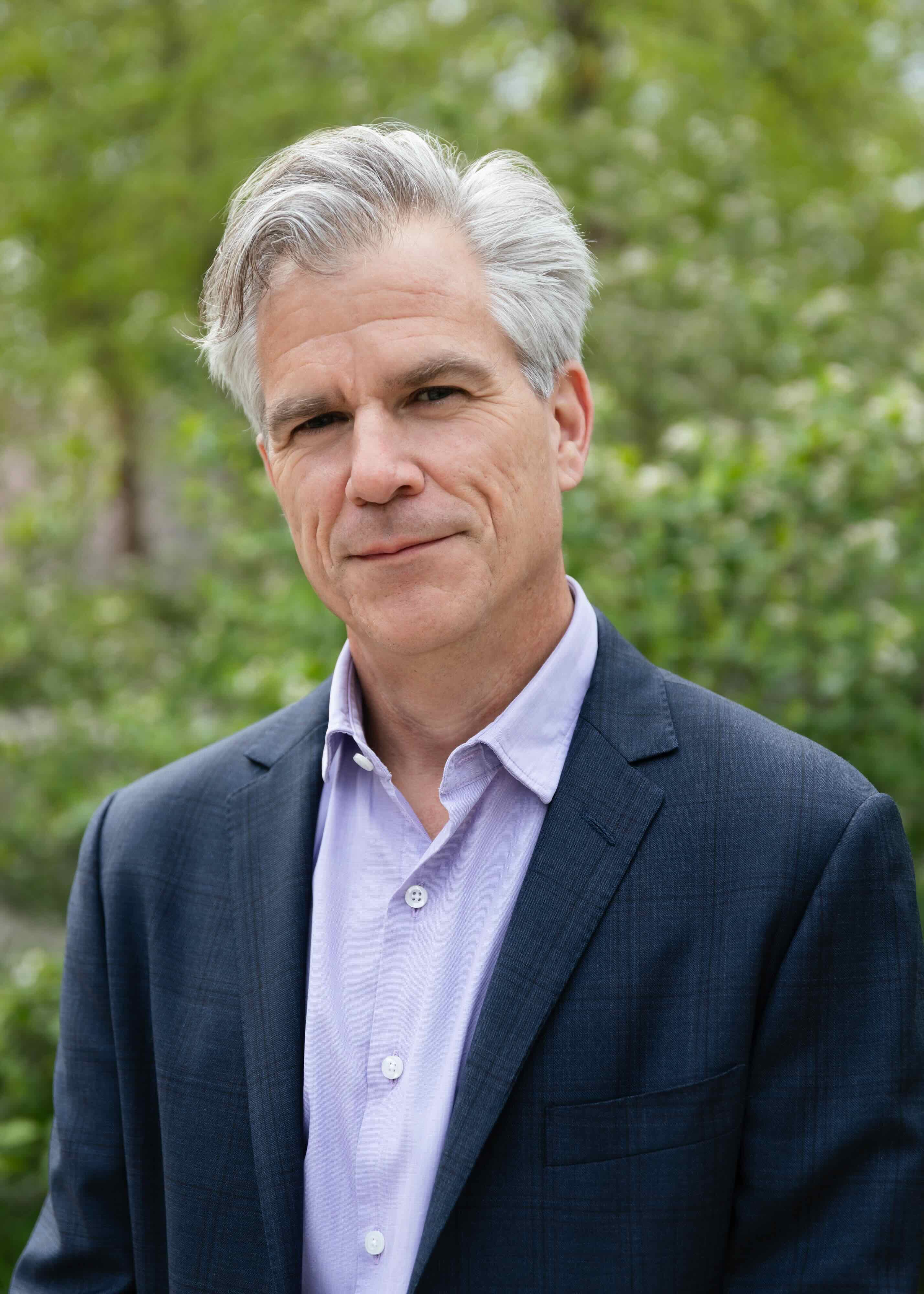
Columbia University, PhD '02
BIOGRAPHY
Paul Cheney is an historian of Europe with a specialization in old regime France and its colonial empire. Before beginning his PhD training in history at Columbia University, he studied political economy at the New School for Social Research. He has taught at Columbia University, the European College of Liberal Arts (Berlin), and the Queen's University of Belfast.
The unifying element of Professor Cheney’s work is an interest in early modern capitalism, and in particular the problem of how modern social and political forms gestated within traditional society. Old regime France serves as an excellent case study in this problem because of the way in which it combined real economic dynamism with deep-seated political and social impediments to growth. He addresses France’s integration into a globalized early modern economy in a methodology diverse way, drawing on intellectual, economic, and social history. His first book, Revolutionary Commerce: Globalization in the French Monarchy (Harvard University Press, 2010), examined how French philosophes, merchants, and administrators understood the adaptability of the French monarchy to the modernizing forces of primitive globalization. Currently, he is working on a second book entitled, Cul de Sac: Patrimony, Capitalism, and Slavery in French Saint-Domingue (University of Chicago Press, 2017), a micro-history of one plantation in France’s richest colony. He has published in such journals as The William and Mary Quarterly, Past & Present, Dix-Huitième siècle, and Les Annales historiques de la révolution française.
Recent Graduate Courses
- The French Revolution
- Old Regime France
- Atlantic Worlds, c. 1700–1800
- Political Economy and the Invention of Society, c. 1680–1830
- Montesquieu and the Enlightenment, with Robert Morrissey, Department of Romance Languages and Literatures
- Revolutionary Culture in Eighteenth-Century France and America, with Eric Slauter, Department of English
Recent Research / Recent Publications
- Cul de Sac: Patrimony, Capitalism, and Slavery in French Saint-Domingue. Chicago: University of Chicago Press, 2017. Published in French as Cul de Sac: Une Plantation à Saint-Domingue au XVIIIe siècle. Arthème Fayard, 2022.
- Revolutionary Commerce: Globalization and the French Monarchy. Cambridge, MA: Harvard University Press, 2010.
- “The Capitalism and Slavery Debate: Land, Labor, and Capital,” Critical Historical Studies 12, no. 1 (2025): 1–22.
- “Inheritance and Incest: Toward a Lévi-Straussian Reading of Montesquieu’s De l’esprit des lois,” History and Theory 64.1 (2025): 46–74. (open access)
- “Le Débat sur capitalisme et esclavage : un débat inachevé,” In Travail servile et dynamiques économiques XVIe-XXIe siècle, edited by Mendes, Almeida, Conchon, Anne, Alessandro Stanziani, and Myriam Cottias, 97–116. Paris: IGPDE-Comité pour l’histoire économique et financière de la France, 2024.
- “Political Economy,” in The Cambridge Companion to Montesquieu, eds. Keegan Callanan and Sharon Krause, Cambridge Companions to Philosophy (Cambridge University Press: 2023), 216-31. (Open access)
- "István Hont, the Cosmopolitan Theory of Commercial Globalization, and Twenty-First-Century Capitalism." Modern Intellectual History (15 March 2021): 1-29.
- "The French Revolution’s Global Turn and Capitalism’s Spatial Fixes." In "Forum: The French Revolution is Not Over." Special edition, Journal of Social History 52, no. 4 (Summer 2019).
- "Haiti's Commercial Treaties: Between Abolition and the Persistence of the Old Regime." In Balance of Power, Balance of Trade: the Politics of Commercial Treaties in the Eighteenth Century. Edited by Antonella Alimento and Koen Stapelbroek. London: Palgrave Macmillan, 2017.
- "Commerce." In The Cambridge Companion to the French Enlightenment. Edited by Daniel Brewer. Cambridge: Cambridge University Press, 2014. (Open access)
- "Aufklärung und die politische Ökonomie des Kolonialismus.” In Der moderne Staat und „le doux commerce”–Staat, Ökonomie und internationales System im politischen Denken der Aufklärung. Edited by Olaf Asbach. Baden-Baden: Nomos, 2014.
- With Alan Forrest, Lynn Hunt, Mathias Middel, and Karine Rance. "La révolution française à l'heure du Global Turn." Annales historiques de la Révolution française 374 (Dec. 2013). [link requires subscription access].
- With Loïc Charles. "The Colonial Machine Dismantled: Knowledge and Empire in the French Atlantic." Past and Present 219 (May 2013). [link requires subscription access]
- "A Colonial Cul de Sac: Plantation Life in Wartime Saint-Domingue, 1775-1783." Radical History Review: Special issue Haitian Lives /Global Perspectives 115 (Win. 2013): 45–54. [link requires subscription access]
- "A False Dawn for Enlightenment Cosmopolitanism? Franco-American Trade during the American War of Independence." The William and Mary Quarterly 63 (July 2006): 459–84. [link requires subscription access]
- "L'Histoire du commerce." In Le Cercle de Vincent de Gournay: savoirs économiques et pratiques administratives en France au milieu du xviii siècle. Edited by Loïc Charles, Frédéric Lefebvre, and Christine Théré. Paris: INED, 2011.
- "Finances, Philosophical History and the 'Empire of Climate': Enlightenment Historiography and Political Economy." Historical Reflections 31, no. 1 (2005): 141–67. [link requires subscription access]
- "Les économistes français et l'image de l'Amérique: l'essor du commerce transatlantique et l'effondrement du 'gouvernement féodal'." Dix-huitième siècle 33 (2001): 229–43.
- "Constitution and Economy in David Hume's Enlightenment." In David Hume's Political Economy. Edited by Margaret Schabas and Carl Wennerlind. London: Routledge, 2008.
- "Lumières écossaises." In Dictionnaire électronique Montesquieu. Edited by the École normale supérieure de Lyon, pour le compte de l’Institut d’histoire de la pensée classique. February 2008 (September 2013, 2nd ed.).
- Awarded the Society for French Historical Studies' 2018 Gilbert Chinard Prize for Cul de Sac.
- Receives NEH grant to conduct a summer seminar for college and university teachers in July 2018.
- Published Cul de Sac: Patrimony, Capitalism, and Slavery in French Saint-Domingue (Chicago, 2017)
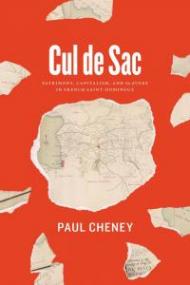
- Delivers plenary lecture at Oxford University, United Kingdom
- Discusses his latest research on Saint-Domingue/Haïti at Aarhus University
- Invited to be a visiting professor the Ecole des Hautes Etudes en Sciences Sociales, Centre de Recherches Historiques, spring 2016
- Organizes conference on "Political Economy in the Age of Enlightenment and Revolution: Interdisciplinary Approaches"
- Collaborates with Parisian scholar on Colonial Plantation Economy
- “The French Revolution,” radio interview on WGN Chicago, Extension 720, March 22, 2011.
